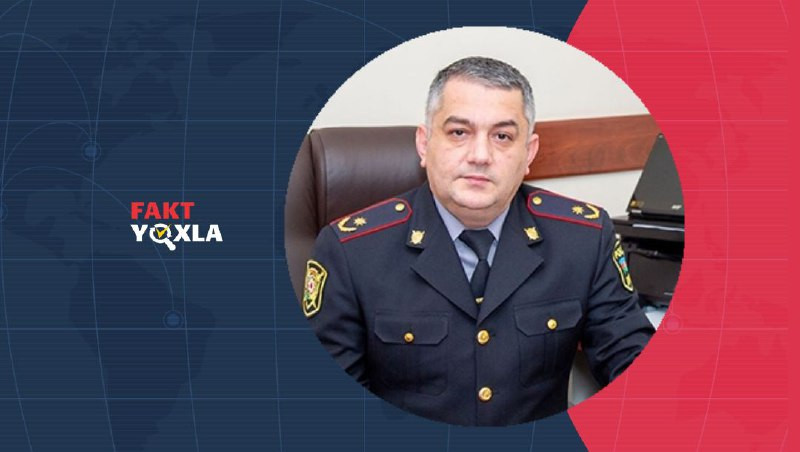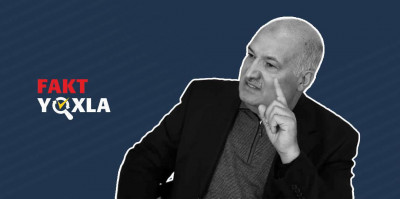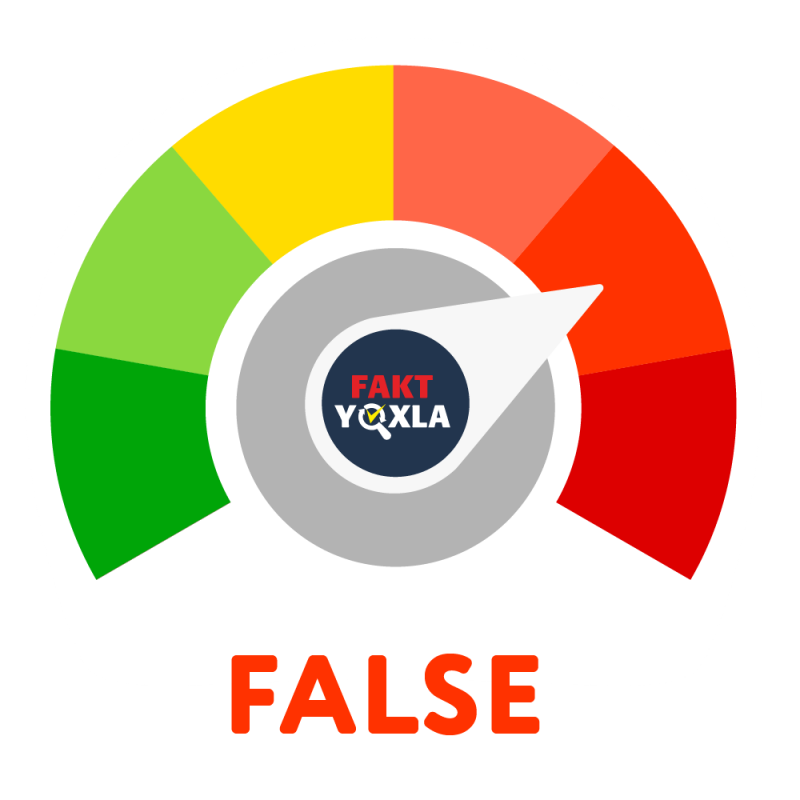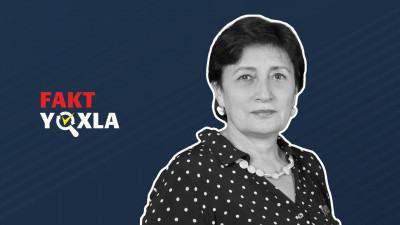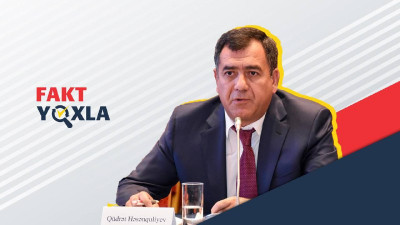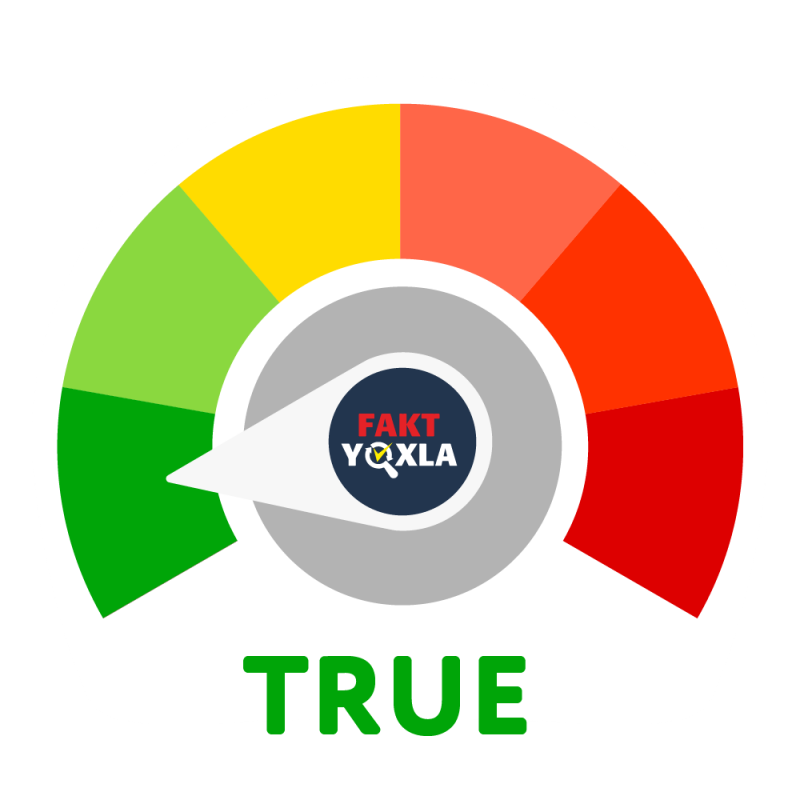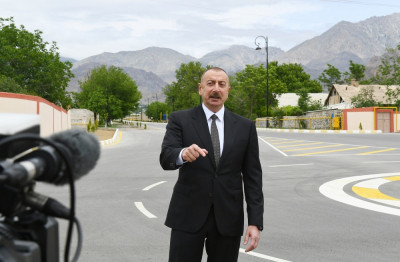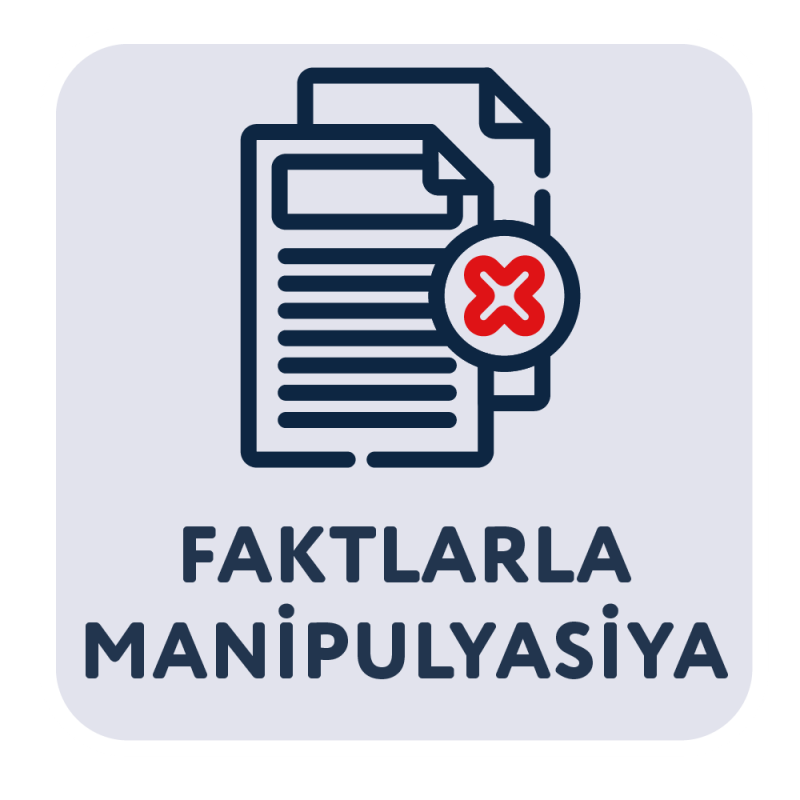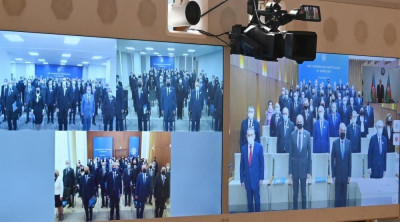Police Major Elshad Hajiyev, head of the media and public relations department of the press service of the Ministry of Internal Affairs (MIA), regularly shares posts about crimes and arrests in the country on his personal Facebook page.
Some of these posts contain information about the names, births, regions of their registration, and heights, as well as photos and voices of various people.
Furthermore, the content of some posts raises questions about the violation of the presumption of innocence.
Fakt Yoxla examined the points related to the protection of personal data and the right to the presumption of innocence in the shared posts of the MIA spokesman.
First, let's take a look at some examples of Hajiyev's posts.
20.06.2022
"Movsum Aslanov, a previously convicted drug dealer, was detained during the next operation conducted by the District Police Department yesterday."
In addition to the information on name, surname, and conviction, a photo showing the person's height has also been shared in the post.
17.06.2022
"A person suspected of committing massive cyber crimes under the name of "high-interest earnings" and "money is given on loan" in social network segments has been identified and detained."
The person's name and surname, birth date, and audio video have also been circulated in the sharing.
15.06.2022
"During the operations carried out by police officers, 17 more people involved in illegal drug trafficking were detained."
Photos of individuals have also been added to the sharing.
11.06.2022
"Police officers arrested Reyhan Mirzayeva, a resident of Khudat city, who is suspected of acquiring, storing, transporting, and selling drugs as a result of the operation-search measures."
The audio video of the victim was shared.
04.06.2022
“Does he look like a thief? But he is a professional pickpocket. The metro police caught him. He is 47 years old."
The person's photo was shared publicly.
07.04.2022
Hajiyev shared a photo showing the person's height and a photo of the detained person's ID card showing the picture, name, surname, patronymic, date of birth, and place of birth in his post regarding the person detained on suspicion of online illegal drug trafficking in Nizami district of the capital.
According to Article 32.2 of the Constitution, everyone has the right to the confidentiality of his/her private and family life. Except in cases prescribed by law, interference with private or family life is prohibited. Everyone is entitled to protection against unlawful interference with his/her private or family life.
According to Article 2.1.1 of the Law on Personal Data, personal data means any information that allows determining the identity of a person directly or indirectly.
According to Article 2.1.2 of the Law, the individual about whom personal data is collected, processed, and protected, whose identity was identified or is identified, is considered the subject of personal data.
Considering that the current article is about the dissemination of information, it is necessary to clarify one point in this section.
In Article 2.1.8 of the Law, the definition of the "processing of personal data" does not include the dissemination of information. However, European instruments in this field, including Article 2.c of the Council of Europe Convention for the Protection of Individuals with regard to Automatic Processing of Personal Data (also known as Convention No. 108), which Azerbaijan also ratified, include the dissemination of personal data in the definition of processing.
According to Article 151 of the Constitution, if a conflict arises between normative legal acts of the legislative system of the Republic of Azerbaijan (with the exception of the Constitution of the Republic of Azerbaijan and acts adopted by referendum) and inter-state treaties to which the Republic of Azerbaijan is a party, the international treaties shall apply.
Thus, "dissemination" should also be considered as a part of processing.
According to Article 2.1.12 of the Law on Personal Data, dissemination of personal data means disclosure of personal data through mass media, as well as information systems, or making it possible for individuals to get acquainted with personal data in any other way.
Moreover, information related to a person's conviction (Article 2.1.6), facial image, voice fragment and its acoustic parameters, body measurements, description of special signs and defects of the body, as well as other biometric data, are protected by the said Law (Article 9.5).
Regarding the sharing of such information, according to Article 8.1 of the Law, either the person's consent should be required for this, or there should be cases of compulsory collection and processing of personal data in accordance with the procedure established by the Azerbaijani legislation.
It is not clear whether consent has been received from all these persons, whose information has been shared so far, and even if it is received, whether this consent was given independently or not. Therefore, it is impossible to express a specific opinion in this part.
On the other hand, it is necessary to determine whether there is a norm in the legislation of Azerbaijan that allows the police to share the content in question.
According to Article 199.2 of the Code of Criminal Procedure (CCP), in the course of procedural actions, the unnecessary collection, distribution, and use of information related to the personal life of any person, as well as other personal information that the person deems necessary to be kept confidential, is not allowed.
Apparently, the Code prohibits the sharing of such information namely in an unnecessary form. In other words, data sharing may be permitted for a specific purpose.
Some of Elshad Hajiyev's posts are informative. That is, in these shares, various information about the person is also posted and a certain event is discussed.
In some of the shares, people who have suffered from the actions of the mentioned person are invited and told to contact the MIA.
For example, a post with the content "A person who committed a series of thefts from houses in Narimanov district and other areas of the capital was detained and brought under investigation" shows the person's photo and name and says that the police received similar complaints from residents living in Narimanov district.
As a legitimate, i.e., legal purpose of such sharing, the police can say that the arrested person's information has been shared publicly in order to protect the rights of others. However, the right to sharing for this purpose should be clearly stated in the legislation.
According to Article 15.1 of the Law on Police, it is one of the duties of a police officer to take measures to prevent crime and other violations, to reveal the crime incident and identify the person who committed it, and to study and eliminate the causes of the crime.
According to Article 4 of the Law on Operation-Search Activity, without the consent of any person, it is forbidden to disseminate the information obtained about the inviolability of his/her private life, including the secret of his/her private and family life, as well as his/her honor and dignity. During the investigation of crimes in accordance with the law, this provision allows the temporary restriction of human and civil rights and freedoms.
In this regard, it can be justified by the above legislative provisions that the shared posts have a legitimate purpose with reference to other victims. However, it is not necessary to share all information in these posts. For example, information about a person's previous conviction may not be considered necessary for victims to apply to the MIA.
It cannot be claimed that the interference with the rights to protect private life has any legitimate purpose in the other sharings, that is, where the victims were not addressed.
In the case of Khuzhin and Others v. Russia, the ECtHR reiterated that the concept of private life includes elements relating to a person’s right to his or her image and that the publication of a photograph falls within the scope of private life (§ 115).
In this case, the Court also noted that it did not see any legitimate purpose in the interference with the applicant's right to respect for his private life.
The ECtHR stressed that being in custody at the material time, he was not a fugitive from justice and the showing of his photograph could not have been necessary for enlisting public support to determine his whereabouts. This part is particularly important in the issue under legal analysis. Because the posts are about people who have already been detained by the police.
In addition to the question of interference with the right to private life, sharing should also be examined in terms of protecting the right to the presumption of innocence.
Article 63 of the Constitution, everyone has the right to presumption of innocence. Everyone who is accused of a crime shall be considered innocent until his/her guilt has been proven according to law and the verdict of the law court has been brought into force. Nobody may be considered guilty of committing a crime without a court judgment.
This right is reflected in Article 21 of the CCP. According to this article, every person accused of committing a crime is considered innocent if his guilt has not been proven in accordance with the procedure provided for in this Code and if there is no legally binding court ruling on this. Even if there are reasonable doubts about a person's guilt, it is not allowed to find him guilty.
In addition to these, according to Article 14.1.14 of the Law on Media, it should not be allowed to publish (broadcast) information about the guilt of a person without a legally binding court decision in the information published and (or) broadcast in the media.
Elshad Hajiyev talks about people in some of his posts as "suspects" and in others as persons who committed a specific act.
For example, in one post, the expression "suspect of committing acts of theft" was used, and in the other, "persons who committed criminal acts as a result of operation-search measures" or "a person who steals and deals in selling drugs" were used.
In the case of Avaz Zeynalov v. Azerbaijan, ECtHR reiterated that the presumption of innocence will be violated if a judicial decision or a statement by a public official concerning a person charged with a criminal offense reflects an opinion that he is guilty before his guilt has been proved according to the law (§ 68).
The ECtHR makes a distinction between statements that reflect the opinion that the person concerned is guilty and statements which merely describe “a state of suspicion”. The former infringes the presumption of innocence, whereas the latter has been regarded as unobjectionable in various situations examined by the Court, for example, in the case of Grubnyk v. Ukraine.
In other words, while statements indicating that a person is suspected of committing a crime do not violate the presumption of innocence, statements that present a person as someone who committed a crime and is guilty violate this right.



